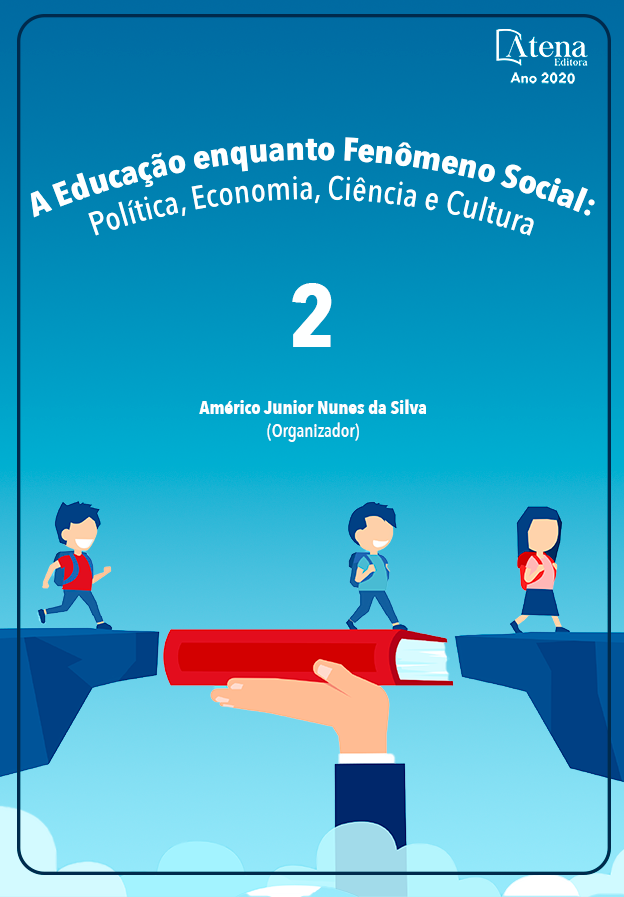
A “INCLUSÃO” DE PESSOAS COM DEFICIÊNCIA VISUAL NO ENSINO SUPERIOR
Este artigo intenciona contribuir com o debate sobre a inclusão de pessoas com deficiência visual (PcD visual) no ensino superior, contextualizado no relacionamento com o corpo docente e com o próprio conhecimento. Traz ainda uma reflexão a partir do relato da experiência de uma aluna que enfrentou tal situação ao longo de sua vida e de sua trajetória escolar, e mesmo diante de todas as limitações ingressou no ensino superior. Sabe-se que a história de pessoas com deficiência no mundo e no Brasil é bastante controversa e coberta de preconceitos sociais. A ideia deste trabalho foi refletir sobre o ponto de vista do relato de uma aluna que viveu esse dilema, mesmo após o estabelecimento de políticas públicas de inclusão desses alunos no ensino regular. Observa-se que o problema da inclusão está atrelado ao sistema capitalista de extrema exclusão social, refletindo desde a educação básica até o ensino superior. Utilizou-se no trabalho como metodologia um estudo bibliográfico e o relato de experiência da aluna que terá sua identidade preservada assim como a instituição. Inicialmente decidiu-se qual seria o tema, o roteiro e a seleção do referencial bibliográfico. Em seguida, durante três meses, o texto foi sendo construído, focalizando-se, num primeiro momento, a deficiência e a sua inclusão na educação brasileira, desde os primórdios até os dias atuais. Na sequência, fez-se uma breve abordagem da deficiência visual, com destaque para a “miopia progressiva”, objeto de estudo deste trabalho, uma vez que se trata da situação da própria aluna. Essa doença aparece e vai progredindo, sem cura para a mesma. A pessoa vai perdendo a visão gradativamente até não conseguir mais enxergar. O estudo tem como premissa suscitar reflexões nas pessoas com deficiência e nas instituições que precisam repensar as condições de atendimento e aprendizagem desses alunos no Ensino Superior.
A “INCLUSÃO” DE PESSOAS COM DEFICIÊNCIA VISUAL NO ENSINO SUPERIOR
-
DOI: 10.22533/at.ed.32720051111
-
Palavras-chave: Educação. Ensino Superior. Inclusão. Pessoa com Deficiência Visual (PcD Visual).
-
Keywords: Education. Higher education. Inclusion. Disable person.
-
Abstract:
This article intends to contribute to the debate on the inclusion of people with visual impairment (visual PwD) in higher education, contextualized in the relationship with the faculty and with their own knowledge. It also brings a reflection from the account of the experience of a student who faced such a situation throughout her life and her school trajectory, and even in the face of all limitations she entered higher education. It is known that the history of people with disabilities in the world and in Brazil is quite controversial and covered with social prejudices. The idea of this work was to reflect on the point of view of the report of a student who lived this dilemma, even after the establishment of public policies for the inclusion of these students in regular education. It is observed that the problem of inclusion is linked to the capitalist system of extreme social exclusion, reflecting from basic education to higher education. In the work, a bibliographic study and the experience report of the student who will have her identity preserved, as well as the institution, was used as methodology. Initially it was decided what the theme, the script and the selection of the bibliographic reference would be. Then, for three months, the text was being built, focusing, at first, on disability and its inclusion in Brazilian education, from the beginning to the present day. Then, a brief approach to visual impairment was made, with emphasis on “progressive myopia”, the object of study of this work, since it is the student's own situation. This disease appears and progresses, with no cure for it. The person gradually loses his vision until he can no longer see. The study's premise is to raise reflections in people with disabilities and in institutions that need to rethink the conditions of care and learning of these students in Higher Education.
-
Número de páginas: 16
- Irondina de Fátima Silva
- Ozair Dias da Costa


